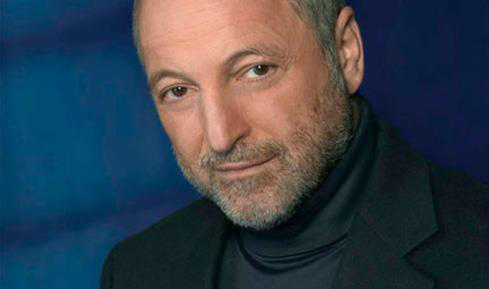“Call Me by Your Name” is a 2007 novel by André Aciman that serves as an intimate portrayal of first love, sexual awakening and coming-of-age. Set in Italy in the summer of 1983, the story follows the burgeoning romance between 17-year-old Elio, played by Timothée Chalamet, and graduate student Oliver, played by Armie Hammer, who stays with Elio’s family over the summer. The novel was adapted into a 2017 film of the same name, which won an Academy Award for best adapted screenplay.
In a conversation at The George Washington University in Lisner Auditorium with Spencer Kornhaber, a culture critic for The Atlantic, Aciman recounted how he brought the novel to life.
The conversation centered on the process of bringing the story from the page to the screen. Given that the story is told from the first-person point of view, relying heavily on Elio’s narration and introspection, conveying his unspoken thoughts in the film was a challenge. Aciman praised Chalamet’s talent, which allows audiences to identify what Elio might have felt throughout his scenes.
“You have an actor like Timothée Chalamet, who is such a brilliant actor that everything he would feel or would suspect somebody else is thinking comes up in his face, and that’s why I think he’s a greater actor than we know,” Aciman said.
He further stated that there are no wrong interpretations of the novel or the film. There is enough space between the dialogue of both media that allows for audience members to feel what the characters might be feeling.
Aciman found the “confession” scene, in which Elio finds the courage to confess his attraction to his love interest Oliver, by far the most difficult portion to write. Despite the nature of the scene, the confession itself is vague and abstract, as Elio states that he “knows very little of the things that matter” in response to Oliver saying he seems to know everything.
Reminiscent of a common pattern in French literature, which Aciman used as inspiration, this scene is a sequence of taking a risk, gauging the other person’s reaction, anticipating rejection and ultimately retracting the admission if necessary. Aciman hoped to capture the ambiguity and subtlety of the moment and expressed his happiness with how the film portrayed that silence.
“Each time I thought, ‘Perfect! This is exactly what I wanted. They’re not saying anything, yet they’re saying everything,’” Aciman said.
When asked about the inspiration behind the title, Aciman told the story of his two friends, a lesbian couple who coincidentally had the same name as one another. He was enamored by the idea of lovers being so in tune that it was ambiguous whether they were saying their partner’s name or their own when they addressed each other. He therefore sees the title, “Call Me by Your Name,” as the ultimate expression of intimacy.
“The confusion of identity is what I think intimacy really means,” Aciman said. “When somebody else thinks your thoughts before you finish them, before you can even utter them, they’ve understood it. They always understand what it is that you have in mind.”
What distinguishes “Call Me by Your Name” from most LGBTQ films is the distinct lack of tragedy that is often typical of LGBTQ love stories; this choice was deliberate on Aciman’s part. While the endings of both the novel and film are bittersweet, they do not involve a tragic death or a violent separation of the two lovers.
“I wanted none of these sort of real facts from life,” Aciman said. “I wanted them not to intrude on what was not really an erotic utopia, but it was nevertheless a moment of when two people abandon everything that would have impeded them and simply find what I think is the best thing that two human beings can experience ever, which is intimacy.”





















